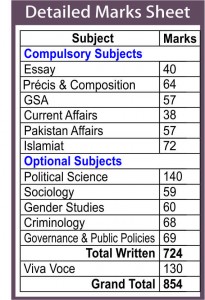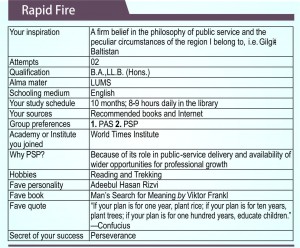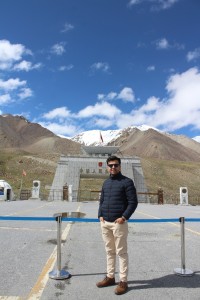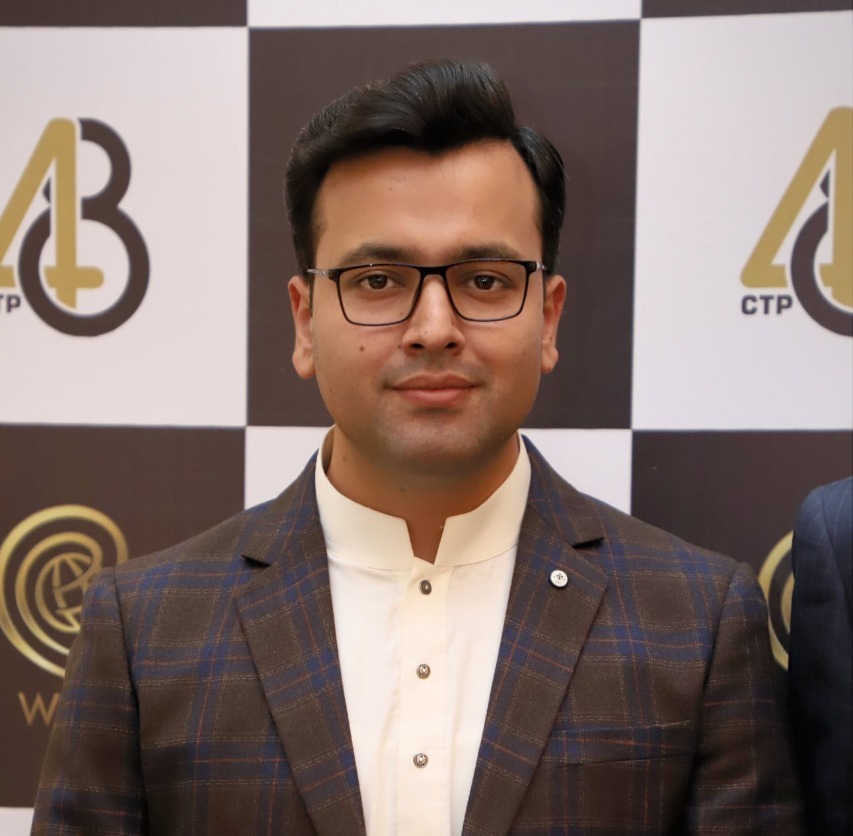In Conversation with
Junaid Alam (PAS) 14th in Pakistan
2nd in GBFATA
CSS 2019-20
Jahangir’s World Times (JWT): First of all, please tell us about your educational background?
Junaid Alam (JA): I did my FSc (Pre-Engineering) from Aga Khan Higher Secondary School (AKHSS), Gilgit, and graduated with a degree in law from Lahore University of Management Sciences (LUMS).
JWT: Since you have been allocated to Pakistan Administrative Service (PAS), what was the feature of this service that attracted you most?
JA: The interaction with public at large for the implementation of policies at the grassroots, provincial and federal levels. Similarly, vast opportunities for professional and personal development through work in diverse portfolios and advanced studies at the international level.
JWT: What, in your opinion, is the key to making a difference in written part of CSS exam?
JA: There are four key components: (1) in-depth understanding of the syllabus; (2) preparation from well-referenced sources; (3) solving past papers, especially from 2016 and onwards; and (4) timely feedback on the responses from qualified mentors/seniors.
JWT: Generally, compulsory subjects are considered low-scoring, what was your strategy to get through these very papers?
JA: Survive the Essay paper by focusing on its three key aspects, i.e. relevance, clarity and organization; capitalize on a good vocabulary for Précis and Composition; firm grip on national and international issues for Current and Pakistan Affairs; practice the math portion to almost perfection in GSA; and build a strong aptitude in the Islamic tradition, irrespective of the CSS exam.
JWT: How answers should be written to get maximum marks?
JA: The response should be relevant and well-structured. Every answer should have a sound introduction that provides a bird’s eye view to the examiner. Thesis statement is mandatory and should be drafted lucidly. Make use of headings and subheadings without losing focus of the central question. It is indispensable for understanding the question asked in the paper. Use diagrams, flowcharts and maps, where necessary.
JWT: Should there be some word limit kept in mind while writing answers?
JA: Not everything under the sun can be included in an answer. A good response to a 20-mark question should not exceed 6-7 pages. What can be said, has to be said clearly. A natural corollary is that the answers should not be so brief as to miss out substance, i.e. 2-3 pages because it reflects lack of knowledge or inability to dilate upon a topic reasonably.
JWT: How did you structure your Essay and what was your strategy for Précis and Composition Paper?
JA: For Essay, both preparation and practice are of essence. The 20-odd broad areas such as education, technology, democracy, gender and economy should be prepared from multiple dimensions. For the Essay I attempted, “Expanding Information Technology: A Curse or a Blessing,” I kept the canvass broad by not limiting the topic to hardcore IT. It included its linkage as a blessing with democracy, health, education and governance.
For Précis & Composition, I practiced précis writing almost daily in the last one and a half month. I worked more on the vocabulary part, which is very important to crack the paper, rather than trying to memorize 5000 or more idioms.
JWT: How a new aspirant should start his/her preparations for CSS exam?
JA: I would suggest a six-point strategy in this regard:
- Make a timetable, and follow it religiously.
- Try to cover the topic(s) in the syllabus from multiple sources, i.e., books, YouTube channels, and Podcasts (download and study at least 2-3 FPSC-recommended books for each subject, both compulsory and optional).
- Work in a group of 3-4 friends/university fellows.
- Study maximum hours of the day in a library (in my case, I was fortunate to gain access to the LUMS library which provided me a congenial atmosphere to study).
- Practice actual exam questions from the previous years under timed conditions.
- Appear in a few mock exams, especially for English Essay and Précis and always receive timely feedback.
My Interview Experience
My interview went on for around 30 minutes. Questions were asked from the command task, world history, law, governance, theology, and politics. The overall environment was friendly.
JWT: What areas should the new aspirants focus while preparing for the CSS exam?
Ans: New aspirants should focus on two major areas: English writing and current affairs.
My Tips:
Selection of optional subjects
Consider the background in the subject and your potential to excel in a subject that is not related to your educational background, based on interest and some aptitude.
The Books I Recommend
This is only the tip of the iceberg, as subjects both optional and compulsory have several recommended books:
- Constitutional and Political History of Pakistan, Hamid Khan
- Pakistan: Beyond the Crisis State, Maleeha Lodhi (ed.)
- Governing the Ungovernable, Ishrat Hussain
- Pakistan: The Formative Phase, 1857-1948, Khalid B. Sayeed

Notes-making
Make soft-copy notes for all subjects, except Essay, Précis and GSA. Draft short notes towards the end of the preparation cycle in order to revise and absorb the material. Make outlines for potential questions.
Revision
Start revising around mid-December. And, at the end of each revision, practice your knowledge by attempting past papers.
 Jahangir's World Times First Comprehensive Magazine for students/teachers of competitive exams and general readers as well.
Jahangir's World Times First Comprehensive Magazine for students/teachers of competitive exams and general readers as well.



